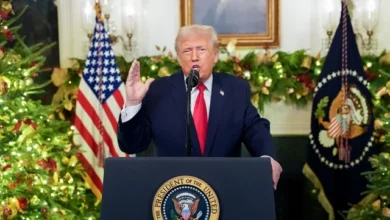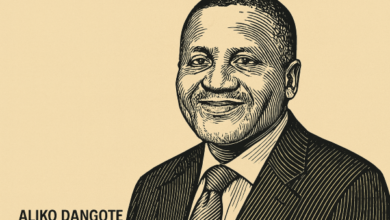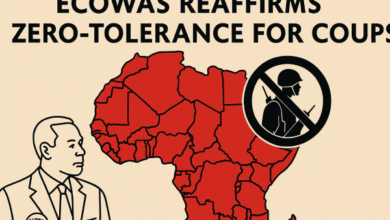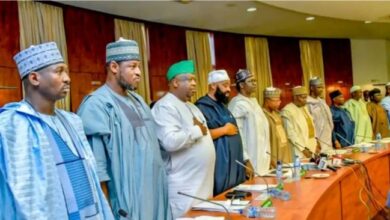How Natasha Akpoti Uduaghan Beat All Odds to Hold a Rousing Rally in Kogi Central
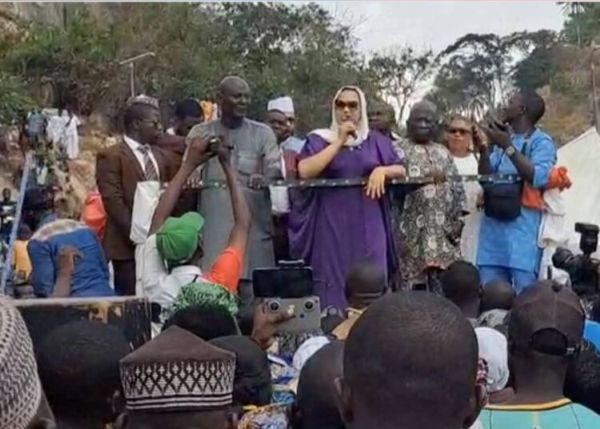
Natasha Akpoti Uduaghan has never been one to shy away from a fight. The fearless politician, whose name has become synonymous with defiance in Kogi and Nigerian politics, once again proved that political will and public support trump state intimidation when she stormed Kogi Central for a rally that the state government, local authorities, and even security forces went on overdrive in a desperate attempt to prevent it.
Simply put, Senator Natasha Akpoti-Uduaghan’s homecoming rally in Kogi Central on April 1, 2025, was a masterclass in resilience and defiance. Despite concerted efforts by the Kogi State Government, local authorities, and the police to thwart her plans, the embattled senator emerged triumphant, rallying her constituents in a show of unity and determination.
A Ramadan Homecoming or a Political Earthquake?
It all began with what seemed like an innocuous announcement. In the spirit of Ramadan, Natasha declared she would visit her constituents to celebrate the season with them. Given her history as a people-centered politician, no one thought this would morph into a full-scale political confrontation. But those familiar with the political landscape of Kogi Central knew that Natasha’s mere presence in the region was enough to send shockwaves through the state establishment who had strangely clandestinely begun to work on the recall of the beloved Senator.
State Machinery Unleashed: Curfew, Bans, and the Fear Factor
As soon as Natasha’s planned visit gained traction, the Police, state government and its allies sprang into action. The local government imposed an abrupt and unprecedented ban on political rallies. They even further—declaring a daytime curfew, essentially criminalizing any gathering in broad daylight.
The message was clear: Natasha was not welcome in her own home. The move was reminiscent of past attempts to suffocate opposition voices through intimidation and bureaucratic high-handedness. But if history has taught us anything about Natasha, it is that she thrives in adversity.
The People Defy the Ban
Despite the state’s attempts to lock down the region, the people of Kogi Central defied the bans. They took to the streets in large numbers, waiting for their leader. From Okene to Adavi and Ihima, they braved the odds, making it clear that their allegiance was not to the government but to the woman they see as their champion.
The turnout was not just a political statement; it was an act of civil disobedience against a system that has repeatedly tried to suppress their voices. For the ruling establishment, it was a nightmare unfolding in real-time.
The Helicopter Entrance: “I Am Not a Bastard!”
As tensions escalated, Natasha made a grand and defiant entrance. In an almost cinematic moment, she arrived in a helicopter, touching down like a triumphant General arriving at the battlefield. The sheer symbolism was not lost on anyone—she was untouchable, unbowed, and unafraid.
Addressing her ecstatic supporters, she made it clear that nothing could keep her away from her people. With her characteristic bluntness, she declared, “I am a true Ebira girl. No one can stop me from coming home because I am not a bastard.” It was a statement dripping with cultural and political significance—an outright rejection of any attempt to erase her from the political space.
During her rally in Kogi Central, Senator Natasha Akpoti-Uduaghan conveyed several powerful messages that resonated deeply with her constituents.
1. Defiance Against Oppression
Natasha emphasized her determination to stand against attempts to silence her, declaring, “I’m breaking no law. This is Nigeria. We have the right to be free, to express our choice in gatherings and celebrations.” This statement underscored her commitment to fighting for democratic freedoms and resisting authoritarian tactics.
2. Identity and Belonging
She proudly affirmed her roots, stating, “I’m a true Ebira girl,” and challenged anyone who questions her right to return home, asserting, “I’m not a bastard, and I’m not afraid of anybody.” This message reinforced her connection to her people and her refusal to be intimidated.
3. Accountability and Justice
Natasha also addressed her ongoing battle against Senate President Godswill Akpabio, whom she accused of sexual harassment. She highlighted the Senate’s refusal to investigate her allegations, framing it as part of a broader culture of silencing dissent and protecting powerful figures.
4. Unity and Grassroots Empowerment
Her rally was a call for unity among her constituents, urging them to stand together against political oppression. She positioned herself as a champion of the people, promising to continue fighting for their rights and representation.
These messages not only galvanized her supporters but also sent a clear signal to her political adversaries that she remains a formidable force in Kogi and Nigerian politics.
Senate Victimization and the Unresolved Akpabio Scandal
Natasha’s ongoing political battles do not stop at the state level. At the national stage, she has faced relentless victimization in the Senate. Following her election, she became a target for contesting the sitting arrangement in the chamber, a seemingly minor issue that quickly escalated into an orchestrated attempt to sideline her.
Even more damning is the suppression of her sexual assault allegations against Senate President Godswill Akpabio. Despite the gravity of her claims, the Senate leadership has seemingly deployed every trick in the book to bury the issue, once again highlighting the systemic barriers against women who dare to challenge the status quo in Nigeria’s political arena.
What This Means for Kogi and Nigerian Politics
Natasha’s ability to hold a rally against all odds is a sign of things to come. For Kogi, it signals the deep dissatisfaction of the people with the current power structure. The state government’s heavy-handed response has only emboldened the opposition, making Natasha an even bigger political force to reckon with.
On the national stage, it raises serious questions about the extent to which state institutions can be weaponized to suppress political opposition. If a sitting Senator can be treated this way, what hope is there for ordinary Nigerians seeking justice and political fairness?
The Bigger Picture: Implications for Democracy
Natasha Akpoti Uduaghan’s defiance is not just about Kogi politics; it is about the survival of democracy in Nigeria. The blatant use of security forces to intimidate opposition figures reinforces a dangerous trend. It further reinforces the perception that Nigeria’s democracy is still fragile with stark Hobbesian leanings, where power is maintained not through the will of the people but through coercion.
But if Natasha’s rousing rally proves anything, it is that no amount of political suppression can erase a movement backed by the people. Her story is a testament to the resilience of true leadership—and a warning to those who believe that brute force can silence the voice of the masses.
In the long run, Natasha Akpoti Uduaghan may have won more than just a rally. She may have cemented herself as a defining force in Kogi and Nigerian politics for years to come.









